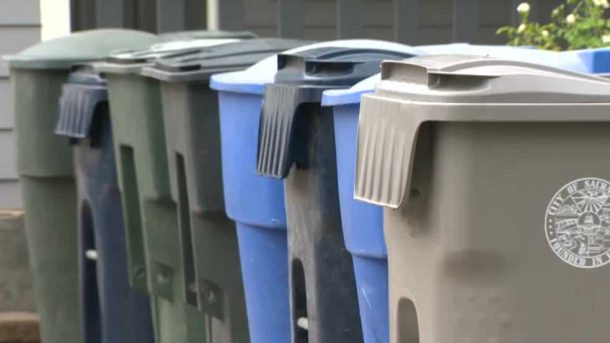The latest breaking updates, delivered straight to your email inbox.
The California law SB 1383, which takes effect in 2022, aims for people at homes and businesses to recycle their organic food waste. This will help reduce methane emissions by limiting what goes into landfills.
The law requires cities and counties to provide organic waste collection services but these jurisdictions are complying in different ways and on different timelines.
(Video: Previous coverage in video above.)
In Sacramento County, for example, starting on July 1 organic food waste must be disposed of in green city yard waste bins. Along with yard waste, these bins should also take fruit and vegetable scraps, eggs, meat, bones and food-soiled papers, such as pizza boxes, coffee filters and napkins.
In contrast, Western Placer County residents will not be required to separate food waste from their garbage because of “innovative technologies that will significantly increase the amount of organic waste recycled.”
Tuolumne County has been granted a rural, four-year exemption from the new rules, the county said.
“Most unfortunately, it is all too common that when the State implements worthy programs such as this, they often do not recognize the impact on the Counties in rural areas that simply do not have the resources to adequately comply,” David Goldemberg with the Board of Supervisors told KCRA 3 in a statement. “When the State has such a tremendous amount of surplus money, yet are unwilling to share more of that with Counties that are struggling, it makes it all the more difficult to manage our affairs.”
For more information, visit CalRecycle’s website and see frequently asked questions here.
Hearst Television participates in various affiliate marketing programs, which means we may get paid commissions on editorially chosen products purchased through our links to retailer sites.
How you should be sorting organic waste in Northern California by county – KCRA Sacramento



